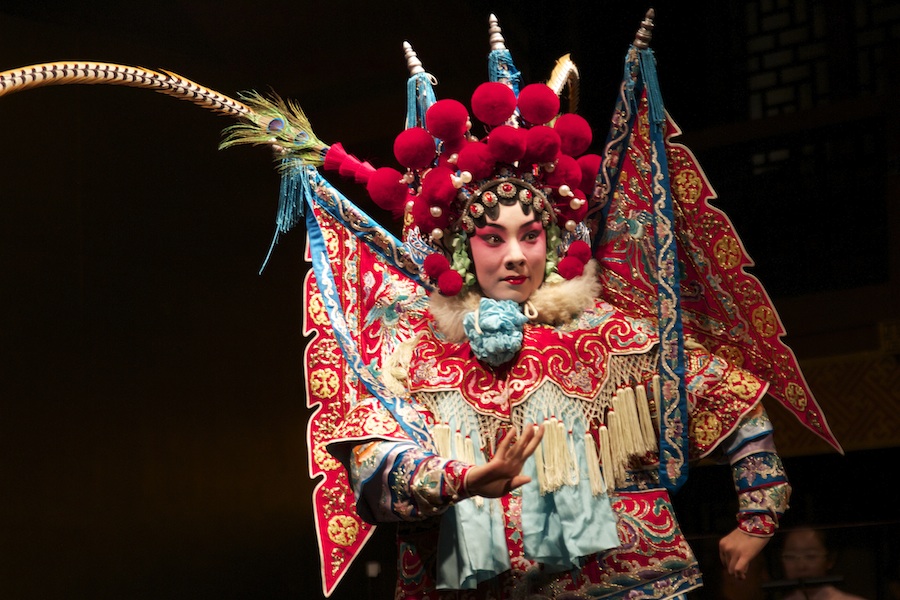Feel the Noise: How to Appreciate Peking Opera
We can all acknowledge that Chinese opera is very different from its Western counterpart. Although someone like Andrea Bocelli would probably make a fine eunuch on the Beijing stage, the similarities between the two styles are very limited. The use of gestures, acrobats, and cacophonous music is so alien to our cultural palate, but if you approach it with an open mind, the beauty of this amazing art form will eventually reveal itself. From the details of the costumes and makeup, to the other worldly sounds coming out of the performers, there is nothing else like it. Here are a few basic concepts to help newcomers get a better understanding of this art form, and clear your path to becoming a Mei Lanfang fanboy.


